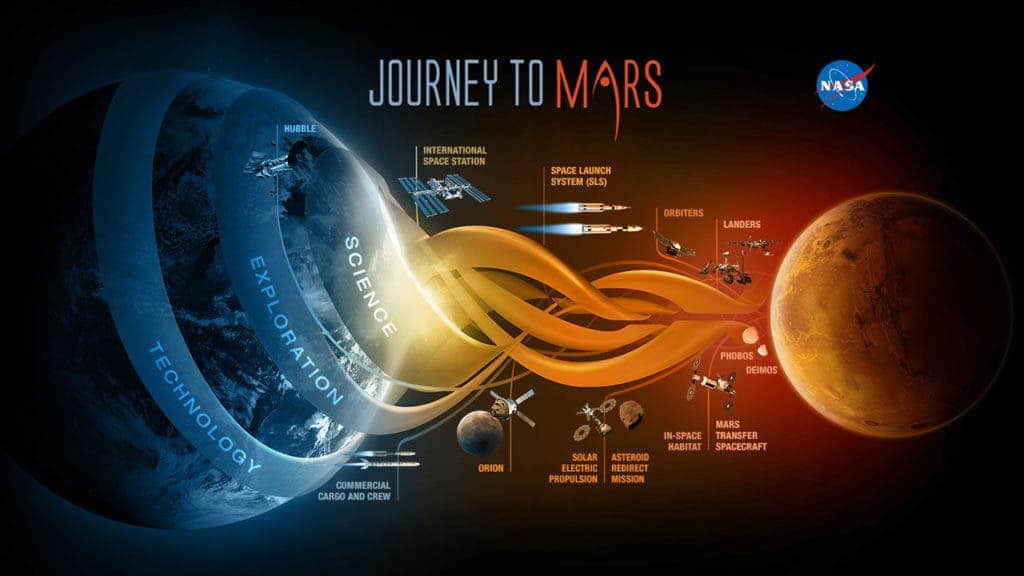It’s just a statement, but it’s a pretty clear statement.

Since the early 2000s, several entrepreneurs have started to develop competitive spaceflight alternatives, breaking what was, until then, a state monopoly. A few companies have managed to bring on significant innovations and reduce costs for some operations, encouraging NASA and other similar organizations to rely on private services more and more.
Boeing and SpaceX are two such companies, both of which have earned the rights to transport U.S. crews to and from the space station using their CST-100 and Crew Dragon spacecraft, respectively. The two companies are in a healthy but heated competition, with Boeing Chief Executive Dennis Muilenburg declaring at the Boeing-sponsored tech summit in Chicago in October 2016 that he wants to be the first one to send people to Mars.
“I’m convinced that the first person to step foot on Mars will arrive there riding on a Boeing rocket.”
Recently, Muilenburg repeated that claim on CNBC, adding that he has a concrete plan for a test flight in 2019.
“We’re going to take a first test flight in 2019 and we’re going to do a slingshot mission around the Moon.”
Unlike last year, when SpaceX CEO and mastermind Elon Musk remained silent, this new statement drew a reaction. “Do it,” Musk dryly wrote on Twitter.
Do it
— Elon Musk (@elonmusk) December 7, 2017
The truth is, both Boeing and SpaceX are quite far from being able to send people to Mars. NASA has already granted Boeing more than $10 billion for development of the Space Launch System rocket, part of NASA’s deep space exploration plans including a manned mission to Mars. Muilenburg might say that’s bound to happen in 2019, but NASA basically admitted that it won’t, saying that a 2019 launch is a “best case” scenario, and a slip into 2020 is much more likely.
Boeing also needs much more funding from NASA, and the newly imposed leadership of Mike Pence adds even more uncertainty. So there are a lot of question marks around the project, but Boeing is making a clear statement. They want to dance, and SpaceX is ready to rumble — which is thrilling to see, really.
The two companies are in a feverish competition, vying to take humanity where no man has gone before. It’s the kind of competition which leads to progress, and it’s the kind of progress we can’t have enough of.
To both Musk and Muilenburg, I can only say one thing: “Do it.”






